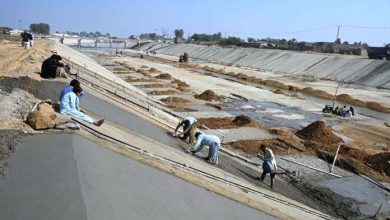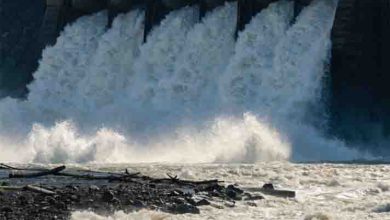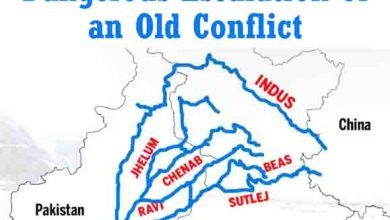Southeast Asia’s Second Largest Economy Celebrates Its New Year with Water Festival: Songkran 2025 Kicks Off with Splashes of Joy
Southeast Asia's second largest economy celebrates its New Year with water festival Songkran 2025, drawing tourists, boosting tourism, and symbolizing renewal.
Southeast Asia’s second largest economy celebrates its New Year with water festival traditions that flood the streets with color, joy, and symbolic renewal. Thailand’s Songkran Festival 2025 began this Sunday with an outpouring of festivity and tradition as locals and tourists alike joined in one of the world’s most unique and joyful New Year celebrations.
From splashing water in city centers to water battles on the back of pickup trucks, the entire nation plunged into the spirit of cleansing and a fresh start.
What is Songkran and Why is It Celebrated?
Songkran, the Thai New Year, is celebrated annually from April 13–15. It marks the beginning of the solar calendar and is deeply rooted in cultural and religious values. Water, the central element of Songkran, symbolizes:
-
Purification and renewal
-
Washing away of sins and bad luck
-
A new beginning
Traditional rituals include visiting temples, offering food to monks, and pouring scented water over Buddha statues and elders to receive blessings.
How Thailand Prepared for Songkran 2025
This year’s festival saw a resurgence in public celebrations after years of pandemic-related restrictions and recent geopolitical tensions.
“Today I came well-prepared. I have my weapons – four (water) guns. I’ve got goggles and a hat for protection, and a waterproof phone pouch ready to go,” said Teera Rachapol, 50, from Bangkok.
Key Highlights:
-
Major streets turned into designated water zones
-
Vendors selling water guns, waterproof gear, and snacks
-
Public safety units deployed to manage crowds
-
Live cultural performances in Bangkok, Chiang Mai, and Pattaya
The Economic and Tourism Impact
The Songkran Festival 2025 brings much-needed relief and optimism to Thailand’s tourism industry.
Tourism by the Numbers:
-
9.5 million foreign tourists visited Thailand in the first quarter of 2025
-
The government expects an 8% increase in international arrivals during Songkran week
-
Average spending by tourists is projected to rise by 6%, boosting local economies
Economic Significance:
-
Songkran contributes over $1.5 billion USD in revenue annually
-
Hotels reported 90% occupancy rates in key cities
-
Increased domestic travel within provinces due to extended public holidays
This makes Songkran not only a cultural highlight but also a strategic economic event.
Safety Concerns Amid Celebration
While joy abounds, safety remains a concern.
The festival comes just weeks after a deadly 7.0-magnitude earthquake in neighboring Myanmar, which killed over 3,500 people and affected parts of northern Thailand. The tragic collapse of a building in Chiang Rai has made some citizens cautious.
“As long as you have your guard up, there’s not going to be any problem,” said Zhang, a tourist from China, amid Bangkok’s celebration.
Precautions Taken:
-
Increased police and emergency personnel presence
-
Health and safety booths with medical aid and hydration points
-
Real-time alerts for aftershocks and emergency drills
Tourists Share Their Experience
Foreign visitors were quick to express their delight at experiencing Songkran firsthand.
Tinke Stockman, a 20-year-old from the Netherlands said:
“This is totally different. And we didn’t know what to expect, but it’s very fun. I love it. I love the water.”
Tourist Activities Include:
-
Participating in traditional parades and street festivals
-
Visiting temples and cultural sites
-
Engaging in eco-friendly water battles with biodegradable water guns
-
For many, Songkran is the perfect blend of culture, fun, and exploration.
Regional Impact After Myanmar Earthquake
The March 2025 Myanmar earthquake has cast a shadow across the region.
Implications for Thailand:
-
Northern provinces experienced minor tremors and infrastructure damage
-
Tourism in border areas dipped temporarily
-
Ongoing relief efforts in collaboration with international NGOs
Yet despite the regional hardship, Thailand’s resilience and dedication to celebration offer hope and solidarity across borders.
“We remember those lost, and we celebrate life. That’s the Thai way,” said a local monk during a sunrise blessing in Chiang Mai.
Conclusion and What’s Next
As Southeast Asia’s second largest economy celebrates its New Year with water festival joy, Songkran 2025 stands as a powerful reminder of renewal, unity, and hope.
Thailand has managed to:
-
Revive tourism despite regional and safety challenges
-
Boost its economy through cultural engagement
-
Showcase its rich traditions to the world







